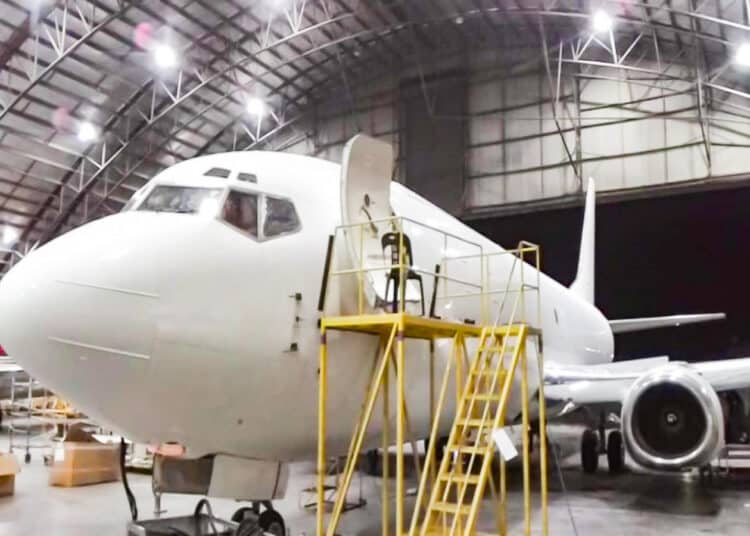Latest Insights on Tariffs and Trade
In the ever-evolving landscape of logistics, the impact of tariffs on the freight forwarding community has emerged as a significant concern. The Airforwarders Association (AfA) Executive Director emphasized recent developments regarding U.S. tariffs and their potential impact on international trade.
Concerns Surrounding Tariffs
U.S. tariffs imposed on goods from various countries and the phase-out of de minimis exceptions have raised red flags for freight forwarders. This was highlighted by Brandon Fried during the CNS Partnership Conference 2025 in Miami. He pointedly remarked, “We need to freeze tariffs, not freeze trade.”
Current Tariff Framework
As of April 5, a blanket 10% tariff was put in place against all countries, although reciprocal tariffs were momentarily delayed pending negotiations. Notably, China was the only country not receiving this temporary reprieve, leading to a drop from a hefty 145% tariff to a much lower 30% on imports from China, with a corresponding reduction of tariffs on U.S. goods entering China. These adjustments remain temporary, with a three-month timeframe for negotiations aiming at a more stable outcome.
Impact of De Minimis Changes
The de minimis threshold—exempting goods valued at under $800 from tariffs—was abolished for shipments from China and Hong Kong after May 2. This development is expected to significantly affect a range of businesses, particularly those reliant on e-commerce and smaller shipments.
Adverse Effects on Air Cargo
The ramifications of tariff changes are not lost on the air cargo sector. The AfA has voiced concerns that these tariffs were originally intended to mitigate trade deficits but have instead created instability. Fried articulated that blanket tariff implementations and negotiations have adversely impacted air cargo operations.
Current Trends and Future Forecasts
As the logistics landscape continues to fluctuate, concerns mount over freight volumes with the prospect of disruption due to changes in shipping strategies. Increased unpredictability surrounding tariffs raises significant challenges. With last-minute alterations potentially causing a ripple effect, an upsurge in demand for air cargo is anticipated from rescheduled shipments, echoing patterns witnessed during the COVID-19 pandemic.
Addressing Transportation Security Issues
Aside from tariff challenges, the Airforwarders Association is also navigating other concerns, including changes within the Transportation Security Administration (TSA). The appointment of a new interim administrator offers hope, but ongoing staff turnover raises alarms about policy consistency and security processes in the air cargo sector.
Engagement With Authorities
The AfA continues to express the importance of maintaining open lines of communication with key regulatory bodies. Efforts to engage stakeholders regarding security program revisions reflect the determination to adapt to changing landscapes, ensuring that freight forwarders remain informed and prepared to guide shippers through evolving regulations.
Challenges in Global Relationships
As tariffs and trade dynamics shift, the perception of the U.S. among international shippers may also be at risk. The U.S., once seen as a stable partner, now faces skepticism, as concerns about reliability could result in the formation of alternative trade networks abroad. This could potentially eliminate opportunities for American businesses in global markets.
The Path Forward in Logistics
Brandon Fried advocates for clear and supportive policy direction from the federal government to restore confidence among trading partners. Acknowledging legitimate security concerns and potential military readiness issues, he stresses the necessity of focusing on trading relationships that have existed for decades. Strong, stable, and predictable frameworks will be essential for nurturing trust and encouraging international commerce.
Future of Air Traffic and Cargo Flow
Freight forwarders have continually observed the need for investment in air traffic control infrastructure to ensure seamless cargo operations. Outdated technology and insufficient personnel levels have hindered effective air cargo routing, creating bottlenecks and delays. Collaborative projects are emerging to address these shortcomings, seeking governmental investment to facilitate necessary updates.
Capacity and Infrastructure Planning
Congestion remains a pressing issue at major airports, particularly in densely populated regions. Delays and inefficiencies could impact delivery schedules significantly as freight volumes are anticipated to rise. The AfA is actively invested in ongoing discussions surrounding airport congestion solutions, underscoring the importance of federal support for infrastructure enhancement.
Conclusion: Keeping a Pulse on Logistics
The challenges surrounding tariffs and transportation logistics are critical for shippers and forwarders alike. As ongoing discussions shape the future of air cargo, ensuring efficiency and reliability is crucial in meeting delivery requirements. With their commitment to affordable and global cargo transportation solutions, GetTransport.com stands ready to facilitate logistics needs, offering guidance and expert support for seamless freight operations.
Ultimately, while reviews can provide insights, nothing compares to the richness of personal experience. Moves and shipments through GetTransport.com come with assured flexibility and transparency, ensuring that logistics needs are met affordably and efficiently. Don’t hesitate to explore your transportation options—Book your Ride with GetTransport.com.

 Ticaret Ayarlamalarının Ortasında Tarifelerin Nakliye Taşımacılığı Üzerindeki Etkilerini Anlamak">
Ticaret Ayarlamalarının Ortasında Tarifelerin Nakliye Taşımacılığı Üzerindeki Etkilerini Anlamak">